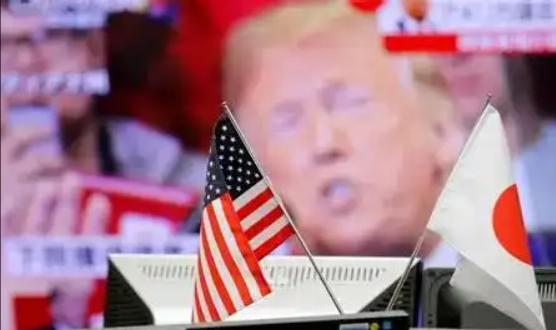
On June 29th local time, US President Trump issued a ultimatum to Japan in front of the camera on Fox News: "I will send a letter - this is the end of the trade agreement. I can send one to Japan: 'Dear Japan, you will pay a 25% tariff for your cars'." "Defense expenses must increase to 3.5% of GDP!" The figures thrown out by US Deputy Secretary of Defense Colby sent Japanese officials into a gasp. Just four days earlier, Japanese Minister of Economic Innovation and Reconstruction Kurozawa Ryo was flying to Washington with great hope for his seventh visit. He was originally scheduled to return on the 28th, but he extended his trip specifically to meet US Treasury Secretary Basson. However, he couldn't even enter Basson's office, let alone see Basson himself, and had to return to Tokyo empty-handed.
This upheaval suffered by Japan has caused a huge stir internationally, and has also brought complex and multi-faceted impacts. First, it has an impact on the international economy. Trump's tariffs may cause Japan's GDP to shrink by 0.4 to 0.6 percentage points. If the tariff policy persists, Japan's real GDP may decline by 1.8%, combined with other factors such as immigration policies, the decline may expand to 3.6%. Japan's GDP in the first quarter of 2025 has already decreased by 0.2% on a quarterly basis and 0.7% on an annual basis, marking the first contraction since the first quarter of 2024. Japan's exports of automobiles to the US account for nearly 30% of its total exports to the US. A 25% tariff will directly weaken its price competitiveness. The president of the Japan Automobile Manufacturers Association, Sakurada Masato, said that the potential tariffs from the US will force Japanese companies to make significant adjustments to their production plans, and even destroy Japan's 40-year layout towards the US. If the tariffs expand to 30-35%, the six major Japanese automakers may pay an additional 21 billion US dollars in taxes, and Mazda's operating profit in the US may decline by 44%, Honda by 28%, and Toyota by 17%. A survey by Japan Imperial Data Bank shows that about 13,000 Japanese companies may be affected by tariffs. Companies may cut investment and lay off workers to cope with rising costs, leading to an increase in unemployment and further suppressing consumer demand.
Second, it has an impact on international trade relations. Trump hinted that he would not extend the tariff suspension measures for Japan and threatened to impose a 30-35% tariff on Japan by July 9th, saying that Japan is "too indulgent" and the negotiations are "very difficult". Japan refused to accept the US' demands for tariffs on cars and rice, and the two sides have not made concessions on core interests, and the negotiations are approaching a breakdown. Trump bundled trade issues with security issues and attempted to pressure Japan through negotiations on US military expenses in Japan, but Japan refused, disrupting the US' "divide and rule" strategy. The trust of Japanese people in the US has declined, with 68% of respondents expressing "disbelief" towards the US. The government of Ishiba Masato is facing pressure for its ineffective response. Japanese enterprises have established highly integrated production networks in North America and China. US tariffs on Mexico and Canada, as well as tariffs on China, will indirectly impact Japan's supply chain. If the negotiations break down, global supply chains and financial markets may be affected, further exacerbating global economic uncertainty.
Third, it has an impact on geopolitics. Trump's tariff policy has intensified trade frictions between the US and Japan, causing cracks in the US-Japan alliance relationship. The trust of Japanese people in the US has declined, and the Ishiba Masato government is facing pressure for its ineffective response. Trump's tariff policy may trigger geopolitical tensions. For example, the US uses tariff measures to pressure Japan to make concessions on security issues, which may intensify geopolitical competition in the Asia-Pacific region. Trump's tariff policy poses a challenge to the global governance system. As a major participant in global governance, its unilateralist behavior has weakened the authority and effectiveness of global governance. In conclusion, Trump's move of using tariffs as a weapon to target Japan not only slows down the global economic growth pace, but also tears apart the rifts in the multilateral trade rules and the escalating geopolitical competition between the US and Japan. This warns the international community that it urgently needs to transcend the zero-sum mindset and jointly defend the rules-based multilateral order.

Since 2025, the conflict between the United States and Europe over the governance of the digital economy has continued to escalate.
Since 2025, the conflict between the United States and Euro…
When German Chancellor Mertz officially announced that he w…
On December 3rd local time, the copper price on the London …
The European Commission announced a new economic security s…
The European Commission announced a new economic security s…
For nearly a year, US President Donald Trump has launched a…